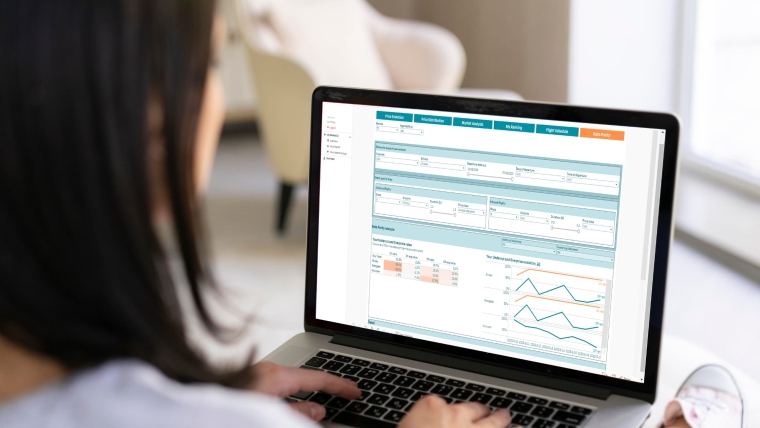For hotels guest reviews wield significant influence over revenue management strategies, after all, in today’s market, where reputation is paramount, understanding and leveraging the impact of reviews is essential for hoteliers seeking to optimize revenue streams and maintain competitiveness in the market.
Understanding the power of reviews
For many hotel bookers, one of the first things they look at when booking a hotel is the reviews. They look to the opinions of previous guests to ascertain whether it is a viable option for them to book. They use reviews to gauge the quality of a hotel’s services, amenities, and overall experience before making a booking decision.
So, it goes without saying that positive reviews can attract new customers, while negative ones can deter potential guests and harm a hotel’s reputation. But, what is the real impact of reviews on booking decisions?
Studies have consistently shown the strong correlation between reviews and booking decisions. According to research by TripAdvisor, 97% of travellers read reviews before booking a hotel, and 49% won’t book a property without reviews.
Furthermore, a one-point increase in a hotel’s review score (on a five-point scale) can lead to an 11.2% increase in room rates, highlighting the direct impact of positive reviews on revenue potential.

The impact on Revenue Management Strategies
With a single point increase in reviews impacting room rates so dramatically, it comes as no surprise that reviews play a pivotal role in modern hotel revenue management strategies.
Positive reviews can enhance a hotel’s perceived value, allowing hoteliers to justify higher room rates. Conversely, negative reviews may necessitate lower prices to attract guests and compensate for perceived shortcomings. Dynamic pricing algorithms often incorporate sentiment analysis of reviews to adjust rates in real-time, ensuring optimal pricing strategies that align with guest perceptions.
Critically, it’s not just your hotel’s reviews that have an impact on pricing strategy. Your competitors reviews are also key. For example, if your nearest competitor has poor reviews, whilst you maintain consistently high reviews, there is an opportunity to increase your rates, whilst maintaining competitiveness with the assumption that many guests would rather pay a little more, for a better experience.

The above is taken from the Ratemetrics review dashboard, and provides a comparative insight into a hotel’s ranking in the key areas guest care about most. We can see in this particular example that the hotel has an overall ranking of 3 out of 8 local competitors, and actually leads in value for money and quality of staff. This information can help hotel revenue managers make more informed room rate decisions.
Reviews provide valuable insights into guests’ preferences, allowing hotels to tailor inventory offerings accordingly. Positive feedback on specific room types, amenities, or services can inform inventory allocation, ensuring that high-demand offerings are adequately stocked. Additionally, identifying areas of improvement from negative reviews enables hotels to refine their offerings and optimize inventory management to meet guest expectations.
Hotels utilize various distribution channels to reach potential guests, including online travel agencies (OTAs), direct booking platforms, and metasearch engines. Reviews influence the performance of these channels, as platforms often prioritize properties with higher ratings and better reviews. By actively managing their online reputation and soliciting positive reviews, hotels can improve visibility and performance across distribution channels, ultimately driving revenue.
Reviews are critical in marketing. The age-old approach to using great reviews in marketing campaigns is never likely to go away. Great reviews are gold dust for hotel marketers (in fact for pretty much all hospitality businesses).
The need for a strategic approach to reputation management:
Maintaining a positive online reputation is crucial for revenue management. Hotels must actively monitor and respond to reviews, addressing guest concerns promptly and demonstrating a commitment to guest satisfaction. By engaging with reviewers, hotels can mitigate the impact of negative feedback and foster a positive perception that resonates with potential guests, ultimately driving bookings and revenue.
Many hotels have dedicated teams to monitor and respond to online reviews and criticism. A prompt, and empathetic, or alternative opinion response often shows potential guests that the hotel takes guest experience seriously.
On a more macro scale, monitoring reviews also allows hotels to take in the bigger picture of how to improve their business. For example if cleanliness is a consistently low score for a hotel, a strategic review of housekeeping and implementing KPIs in this area could see a positive impact on the negative reviews.
In Conclusion
Reviews are a fundamental factor shaping revenue management strategies for hotels. This extends to understanding competitor reviews, as well as your own. By understanding the influence of reviews on booking decisions and incorporating them into pricing, inventory management, and distribution channel optimization strategies, hoteliers can maximize revenue potential and maintain a competitive edge in the market. Embracing a proactive approach to reputation management and leveraging reviews as a tool for continuous improvement are essential components of a successful revenue management strategy in today’s hospitality landscape.
Aggregate Intelligence is helping hotels and hospitality tech companies through AI-driven smart review data solutions, and also our business intelligence platform Ratemetrics.
To delve in-depth into the critical and evolving role that reviews play in customer booking behavior, exploring how hotels can utilize review and sentiment analysis to enhance revenue management strategies, read our latest free eBook here.



